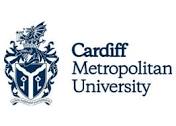All science-based sessions at university will be delivered in our well-equipped laboratories that have been modelled specifically to replicate school provision. Taught content will include topics such as the nature of science;

The PGCE Secondary Science courses at Cardiff Met offer three distinct pathways to the award of Qualified Teacher Status and are available through English or Welsh-medium routes.
Depending on your subject background, you have the option to choose either Biology with Science, Chemistry with Science or Physics with Science, specialising in teaching the 11-18 age range.
Teaching your subject specialism at secondary level, along with wider aspects of science, gives you the opportunity to share your enthusiasm and to use creative and engaging activities to inspire the next generation into the many careers relying on scientific expertise.
About PGCE Sciences
All science-based sessions at university will be delivered in our well-equipped laboratories that have been modelled specifically to replicate school provision. Taught content will include topics such as the nature of science;
how students learn; meeting the needs of individual learners including challenging the more able and talented; effective teaching strategies for science and teaching and managing practical work safely. As you would expect, there is a strong emphasis on practical work, as we believe young minds engage best with science through ‘doing it’.
Developments within the Curriculum for Wales place Biology, Chemistry and Physics within the wider Science & Technology Area of Learning and Experience. To support this structure, you will also gain experience of working alongside those undertaking Design & Technology and ICT courses.
Reputation & Teaching Excellence
The PGCE Science courses are managed and taught by highly skilled staff all of whom have considerable experience of teaching at secondary school level and within Higher Education. Additionally, we are supported by a highly qualified technician who has significant expertise, gained both in industrial and education environments.
Employability & Careers
The PGCE aim to prepare student teachers to be highly skilled, confident, critically reflective, and innovative practitioners who are committed to life-long professional learning and the education of young people.
At university, your specialist sessions will prepare you to teach your subject up to and including A level, whilst additional science-based sessions will develop your confidence in teaching wider aspects of the science curriculum.
At school, you can expect to teach all aspects of science to lower year groups, with the possibility of some wider science teaching up to GCSE and sixth form experience of your specialism in at least one of your two placement schools.
About
Cardiff Met is proud of all its alumni and we continue to support you as you embark on life after university.
We provide early career guidance for recent graduates and aim to keep you connected throughout your career.
We also provide opportunities for you to inspire our students by speaking at events or offering work experience opportunities, and this is just the tip of the iceberg!
We love hearing about where life has taken you since graduating and keeping you up to date with all that's going on at Cardiff Met.
Our history
Our history traces back to 1865 when the School of Art first opened in the Old Free Library in Cardiff.
Since we developed into a university, we have remained rooted in Wales while providing practice-focused and professionally oriented education to students from around the globe.
The institution has gone through numerous name changes over the years, eventually becoming what we know today as Cardiff Metropolitan University:
University of Wales Institute, Cardiff (UWIC) (1996 - 2011)
Cardiff Institute of Higher Education (1988 - 1996)
South Glamorgan Institute of Higher Education (1976 - 1988)
Cardiff College of Food Technology and Commerce (1971 - 1976)
Cardiff College of Education (1970 - 1976)
Llandaff College of Technology (1970 - 1976)
College of Commerce (1968 - 1971)
Reardon Smith Nautical College (1956 - 1970)
Cardiff College of Food Technology (1957 - 1971)
Llandaff Technical College (1954 - 1970)
Cardiff College of Art (1949 - 1976)
Cardiff Teacher Training College (1945 - 1970)
School of Nautical Cookery (1911 - 1973)
Cardiff College of Technology and Commerce (1949 - 1961)
Cardiff Technical College (1916 - 1949)
Cardiff Technical School (1889 - 1916)
Cardiff School of Science & Art (1865 - 1916)
© 2025 coursetakers.com All Rights Reserved. Terms and Conditions of use | Privacy Policy